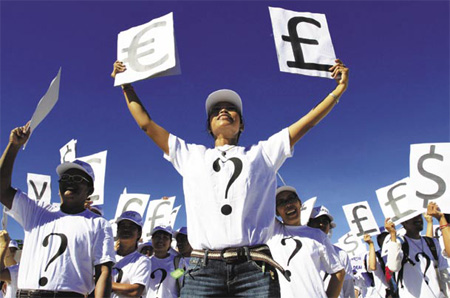China
Optimism high at Cancun talks
By Li Jing, Lan Lan and Wu Chong (China Daily)
Updated: 2010-11-30 11:11
 |
Large Medium Small |
|
|
CANCUN, Mexico - The head of the United Nations climate change negotiations believes that leaders from more than 180 countries will agree on a more balanced package of decisions, including a $30 billion fund, at the climate change meetings that begins on Monday.
Christiana Figueres, head of the UN negotiations, said developed countries have made pledges to put on the table a total of $28 billion to help poor countries better adapt to global warming.
Although an overarching deal to slash greenhouse gas emissions is still out of reach this year at the resort city on the Caribbean coast, a set of decisions including a so-called climate fund and the transfer of green technology could help restore some confidence and pave the way for reaching a legally binding deal next year, said Chao Qingchen, a member of the Chinese delegation.
But political tensions are still palpable between rich and poor countries on such issues as whether Kyoto Protocol - the only available mechanism to cut global carbon emissions - should continue after its first commitment period expires in 2012, Figueres said.
Formalizing the deal that countries made in the Copenhagen Accord, a consensus reached at last year's climate conference, is another thorny issue countries have disagreed with.
"Compromises is an act of wisdom that can unite different positions in creative ways," Figueres told negotiators at the opening ceremony.
Media oulets have highlighted the issue of transparency and accountability as contentious issues in the negotiations.
But for China, the transparency issue won't be a big problem, said Su Wei, China's top climate change negotiator, during the opening ceremony of the climate meeting in Cancun.
China has been very active and is committed to concrete actions for emissions control while keeping its economic growth, Su said.
China has also developed a relatively completed framework for monitoring, certifying and assessing to reduce its energy footprints, he said.
Su said China "did a lot but said little" in energy saving and coping with climate change, and the country would like to increase the transparency of the policies, actions and achievements.
Chinese delegations took part in the meeting with confidence and hope, Su said, adding that China will continue its positive and constructive role in negotiations to secure a balanced and comprehensive outcome.
The United States delegation also expressed its hope that the Cancun climate talks will be able to deliver a set of balanced agreements and achieve "a meaningful outcome", said Jonathan Pershing, head of the US delegation.
He said it is important for the US to work with China during the negotiations as the two countries are the two largest economies as well as the biggest greenhouse gas emitters in the world. But both countries also have enormous resources and have been active in developing clean energy, Pershing said.
He said that China and the US have exchanged views over the past few months.
"There are things we did not agree," Pershing said. "But we are having serious discussions with the Chinese party. We have a lot of areas in agreement. We will continue to work together."
After the opening ceremony on whether the principal of consensus should be insisted, countries clashed with representatives from Papua New Guinea, saying the consensus-based process has resulted in a stalemate during climate negotiations.
Mario Molina, a Mexico researcher on climate policy, urged negotiators to think about future generations and the planet as a whole while representing the countries they come from because climate change is a universal challenge for mankind.
"If the unabated carbon emissions continue, the world will soon reach a tipping point, which will bring disastrous outcomes to everyone on this planet." Molina said. "We can't wait another decade to solve the problem."
China Daily
